ASC 2019
ASC 2019 Reception
The Division hosted a Reception and Awards Ceremony at the ASC Annual Meeting in San Francisco. The ceremony was held on November 14th, 3:30 to 4:50 pm, Marriott Marquis Salon C2, B2 Level.
The Vice Chair Jacinta Gau provided Division updates and the Presentation of awards.
Congratulations to our award winners!
2019 Lifetime Achievement Award Winner: David Weisburd
This award recognizes lifetime scholarly achievement in the field of policing. The award is not given for any single research project or study, but for a body of research developed over one’s career.
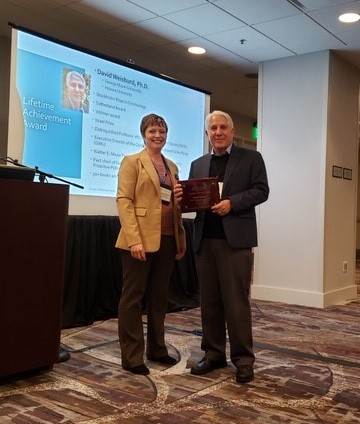
2019 Distinguished Scholar Award Winner: Anthony Braga
The Distinguished Scholar Award recognizes an established academic/researcher who has held a Ph.D. degree for at least ten years and is considered to be mid-career. The outstanding contributions to the field of policing may consist of a single outstanding book or work, a series of theoretical or research contributions, or the recipient’s accumulated scholarly contributions.
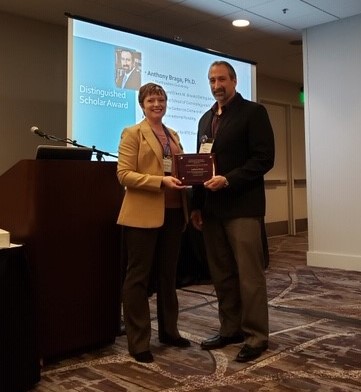
2019 Early Career Award Winner: Cory Haberman
The Early Career Award recognizes outstanding scholarly contributions to the field of policing by someone who has received his or her Ph.D. degree within the last five years.
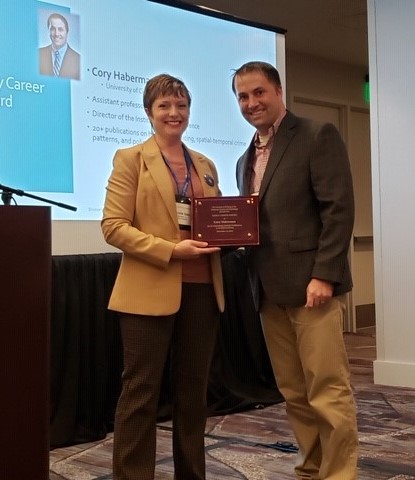
2019 Outstanding Law Enforcement Practitioner Award: No award given
The award recognizes a law enforcement practitioner who has played an integral role in advancing the field of law enforcement and public safety in innovative ways.
2019 Outstanding Book Award: Stop and Frisk: The Use and Abuse of a Controversial Policing Tactic
This award recognizes a monograph (not a textbook, anthology or edited volume) published in the three calendar years preceding this year.
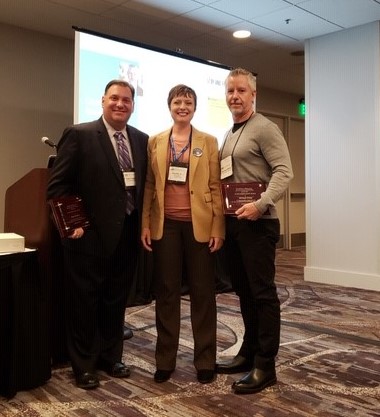
2019 Student Paper Award: Rachel Lautenschlager
The Outstanding student Paper Award is given for a single outstanding paper on the topic of policing that was written by a student enrolled in a recognized Ph.D. program.
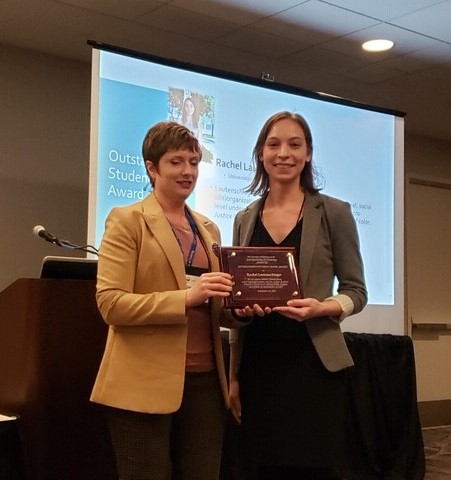
Division of Policing Sponsored events:
Thematic Panel: Measuring Bias & Procedural Justice during Police-Community Encounters
Roundtable Discussion: Educating Police Officers – Important Elements for a Master’s Degree
Thematic Panel: Police Personnel and Organizational Structure
Thematic Panel: De-escalation in Policing: What We Know and Don’t Know
Thematic Panel: Body-Worn Cameras and the Study of Police Behavior
Thematic Panel: Body-Worn Cameras in the Context of Police Organizations, Practices, and Culture
Division of Policing Sponsored Student Panels:
Student Panel I: Police Agency’s Openness to Research, Intelligence, and Change
Discussant: Evan T. Sorg
- William Casey and Kyle McLean. Predicting Law Enforcement Openness to Research and Internal Research Capacity.
- Jon Bottema and Cody Telep. Opennes to Intelligence: Exploring the Attitudes and Behavior of Intelligence Officers in Implementing Phoenix Police Department’s Intelligence Officer Program.
- Vijay F. Chillar. The Racial Divide at Micro Places: A Pre/Post Analysis of the Effects of the Newark Consent Decree on Field Inquiries (2015-2017).
Student Panel II: Use of Force Training, Strategic Approaches, and Officer Stress
Discussant: Julie Schnobrich-Davis
- Matthew Anderson. Police Use-of-Force: The Need for Specialized Training for Police Interaction with Juveniles.
- Brandon Turchan. Understanding Law Enforcement Approaches to Fugitive Apprehension.
- Paige Vaughn. The Effects of Devaluation and Solvability on Crime Clearance.
- Kathleen E. Padilla. Changing of the Guard: Understanding the Impact of Police Leadership on Stress.
Student Panel III: Race, Perceptions of Police Trust and Legitimacy, and Use of Force
Discussant: Jacinta Gau
- Anthony Michalka. Ferguson’s ‘Effect’ on Citizens Calling the Police in St. Louis.
- Logan J. Somers. Race and Police Use of Force: An Empirical Test of Black’s Theory of Law.
- Lorna E. Grant. An Analysis of Citizens’ Perception of Members of the Jamaica Constable Force.
